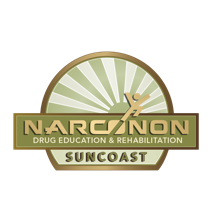Stigmas and the Barriers Created in Overcoming Addiction

Hopeless, junkie, thief, drunk, trash, bum, a lost cause. The list can go on and on when using adjectives to describe an addict in need of help, all stigmas created by the way society views people who seem lost to drug addiction. I understand how a lot of them originate, as I was an addict who exhibited a lot of poor behavior and hurt a lot of people I genuinely care about. These regrettable acts while I was under the influence and chasing the next fix do not fill me with pride, however, overcoming my addiction has given me a lot of perspective on why I behaved the way I did. This perspective simultaneously allowed me to take responsibility for my past while also accepting it as part of my addiction and not something that defines me as a person.
This is where the problem with stigmas lie—they are attributed to the person and not the issue causing the person to act the way they do. If a person is deemed hopeless by the people in his life, where is that person to find the motivation to clean up things up? The reality is that addicts are not hopeless— addiction is something that can be treated and overcome. Addicts will often need a lot of encouragement and emotional support to get through the early days or find the willingness to seek treatment. You can see how deeming their case hopeless creates a barrier to them seeking treatment, and how that stigma can prevent a person from getting clean.
Another common stigma is that all addicts are junkies, thieves, and the like, and again the behaviors that can result from drug abuse are why people designate addicts with these characteristics. I would pose a question in response to this notion. Would you consider someone who used to steal things to feed their addiction but has been clean for five years and has refrained from stealing during that span of time a thief? Or would you consider that was in their past and not something that still defines them? I know my answer, and it is a very straight forward opinion. Addicts are responsible for their actions, yes, but the behaviors are created by drug seeking and the addiction and is not necessarily a reflection of their true personality or what they could be if they received the proper help and a chance to clean things up.
One of the most harmful stigmas in our society is that addicts are a lost cause, cannot be helped, and have made their choice. I have personally never met a person that has told me they planned to have drugs define their life. While people do need to accept responsibility for their choices and actions, a lot of addicts were sent down a path they had no idea would end where it did. Circumstances that create an addiction can be all over the place, such as grief, injury, upbringing, environment, the list goes on. I know my life showed a lot of potential and promise before it was derailed by addiction, and it is not that uncommon of a story amongst addicts. The dreams and goals I had for my life were upended once I became an addict, but that has not stopped me from finding new dreams, new goals, and a new purpose for my life once I got treatment and dedicated myself to a drug-free life. But I did not know any of this when I was an addict, I had to get to that point, and I had a lot of help along the way. If the people in my life who loved me had been of the mindset that I was a lost cause, I would never have found my way out of the hole I had found myself in.
Stigmas regarding addiction are not helping us bring people out of their addictions, and it is not helping the drug crisis our country is currently going through. A phrase that is commonly uttered by people who have gotten clean and sober is that they feel like a completely different person than they were as an addict. One of the things I lacked the most during my addiction was any forward thinking for my life, it was all about getting through that moment, right then, without any regard for the consequences of the choices I was making. If our society treats addicts the same way, if we attach stigmas to addicts and focus on all the negatives without seeing the positives and the potential that comes with recovery, how will anything ever improve? If you or anyone you know is seeking help, please reach out.


